Filter by

Contested childhoods: growing up in migrancy
This open access book explores specific migration, governance, and identity processes currently involving children and ideas of childhood. Migrancy as a social space allows majority populations to question the capabilities of migrants, and is a space in which an increasing number of children are growing up. In this space, families, nation-states, civil society, as well as children themselves ar…
- Edition
- -
- ISBN/ISSN
- 9783319446080
- Collation
- 193 p.; 22 cm.
- Series Title
- IMISCOE Research Series
- Call Number
- 304.808 COn c
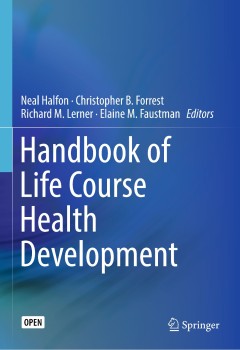
Handbook of life course health development
This handbook synthesizes and analyzes the growing knowledge base on life course health development (LCHD) from the prenatal period through emerging adulthood, with implications for clinical practice and public health. It presents LCHD as an innovative field with a sound theoretical framework for understanding wellness and disease from a lifespan perspective, replacing previous medical, biopsyc…
- Edition
- -
- ISBN/ISSN
- 9783319471433
- Collation
- xxiv, 664p. : ill.
- Series Title
- -
- Call Number
- 362.1 HAN h
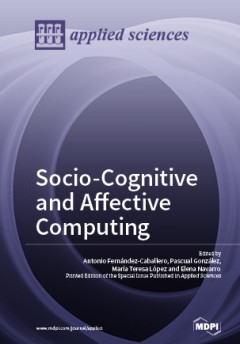
Socio-cognitive and affective computing
Social cognition focuses on how people process, store, and apply information about other people and social situations. It focuses on the role that cognitive processes play in social interactions. On the other hand, the term cognitive computing is generally used to refer to new hardware and/or software that mimics the functioning of the human brain and helps to improve human decision-making. In …
- Edition
- -
- ISBN/ISSN
- 9783038971986
- Collation
- 254 p.; 23 cm.
- Series Title
- -
- Call Number
- 384.648 SOC s
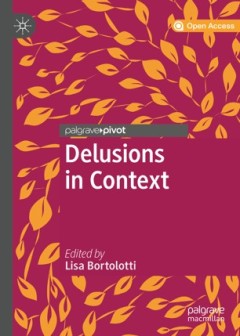
Delusions in context
This open access book offers an exploration of delusions—unusual beliefs that can significantly disrupt people’s lives. Experts from a range of disciplinary backgrounds, including lived experience, clinical psychiatry, philosophy, clinical psychology, and cognitive neuroscience, discuss how delusions emerge, why it is so difficult to give them up, what their effects are, how they are manage…
- Edition
- -
- ISBN/ISSN
- 9783319972022
- Collation
- xi, 121p. : ill.
- Series Title
- -
- Call Number
- 616.89 DEL d
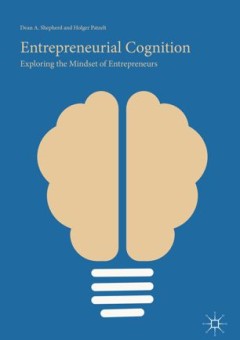
Entrepreneurial cognition : exploring the mindset of entrepreneurs
This open access book investigates the inter-relationship between the mind and a potential opportunity to explore the psychology of entrepreneurship. Building on recent research, this book offers a broad scope investigation of the different aspects of what goes on in the mind of the (potential) entrepreneur as he or she considers the pursuit of a potential opportunity, the creation of a new or…
- Edition
- -
- ISBN/ISSN
- 9783319717821
- Collation
- xiii, 281p. : ill.
- Series Title
- -
- Call Number
- 658.421 SHE e
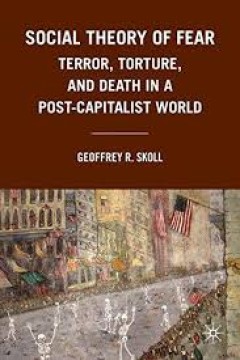
Social theory of fear: terror, torture, and death in a post-capitalist world
Fear has long served elites. They rely on fear to keep and expand their privileges and control the masses. In the current crisis of the capitalist world system, elites in the United States, along with other central countries, promote fear of crime and terrorism. They shaped these fears so that people looked to authorities for security, which permitted extension of apparatuses of coercion like p…
- Edition
- 1st ed.
- ISBN/ISSN
- 9780230103498 (hc : alk. paper)
- Collation
- 234 p. ; 22 cm.
- Series Title
- -
- Call Number
- 320.9051 SKO s
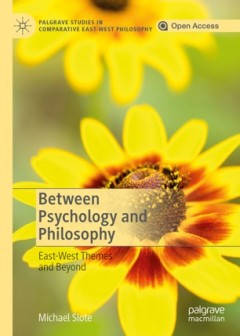
Between psychology and philosophy : east-west themes and beyond
This open access book discusses a variety of important but unprecedented ways in which psychology can be useful to philosophy. The early chapters illustrate this theme via comparisons between Chinese and Western philosophy. It is argued that the Chinese notion of a heart-mind is superior to the Western concept of mind, but then, more even-handedly, the relative strengths and weaknesses of Chine…
- Edition
- -
- ISBN/ISSN
- 9783030225032
- Collation
- x, 215p. : ill.
- Series Title
- -
- Call Number
- 101 SLO b
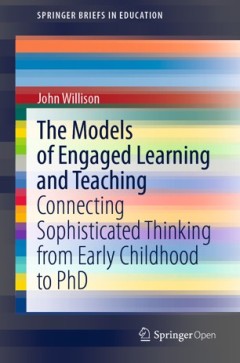
The models of engaged learning and teaching : connecting sophisticated thinki…
This book provides a practical philosophy for promoting students' sophisticated thinking from Early Childhood to PhD in ways that explicitly interconnect across the years of education. It will help teachers, academics and the broader learning and teaching community to understand and implement these connections by introducing a conceptual framework, the Models of Engaged Learning and Teaching (M…
- Edition
- -
- ISBN/ISSN
- 9789811526831
- Collation
- xix, 140p. : ill.
- Series Title
- -
- Call Number
- 370.154 WIL m

Reading Shakespeare's mind
This book shows that William Shakespeare was a more personal writer than any of his innumerable commentators have realised. It asserts that numerous characters and events were drawn from the author's life, and puts faces to the names of Jaques, Touchstone, Feste, Jessica, the 'Dark Lady' and others. Steven Sohmer explores aspects of Shakespeare's plays and sonnets that have been hitherto overlo…
- Edition
- -
- ISBN/ISSN
- 9781526113276
- Collation
- xii, 212p. : ill.
- Series Title
- -
- Call Number
- 822.33 SOH r

Persons and their minds: towards an integrative theory of mediated mind
Today’s approaches to the study of the human mind are divided into seemingly opposed camps. On one side we find the neurosciences, with their more or less reductionist research programs, and on the other side we find the cultural and discursive approaches, with their frequent neglect of the material sides of human life. Persons and their Minds seeks to develop an integrative theory of the min…
- Edition
- -
- ISBN/ISSN
- 9781315623658
- Collation
- 153p.: ill.
- Series Title
- -
- Call Number
- 128.2 BRI p
 Computer Science, Information & General Works
Computer Science, Information & General Works  Philosophy & Psychology
Philosophy & Psychology  Religion
Religion  Social Sciences
Social Sciences  Language
Language  Pure Science
Pure Science  Applied Sciences
Applied Sciences  Art & Recreation
Art & Recreation  Literature
Literature  History & Geography
History & Geography